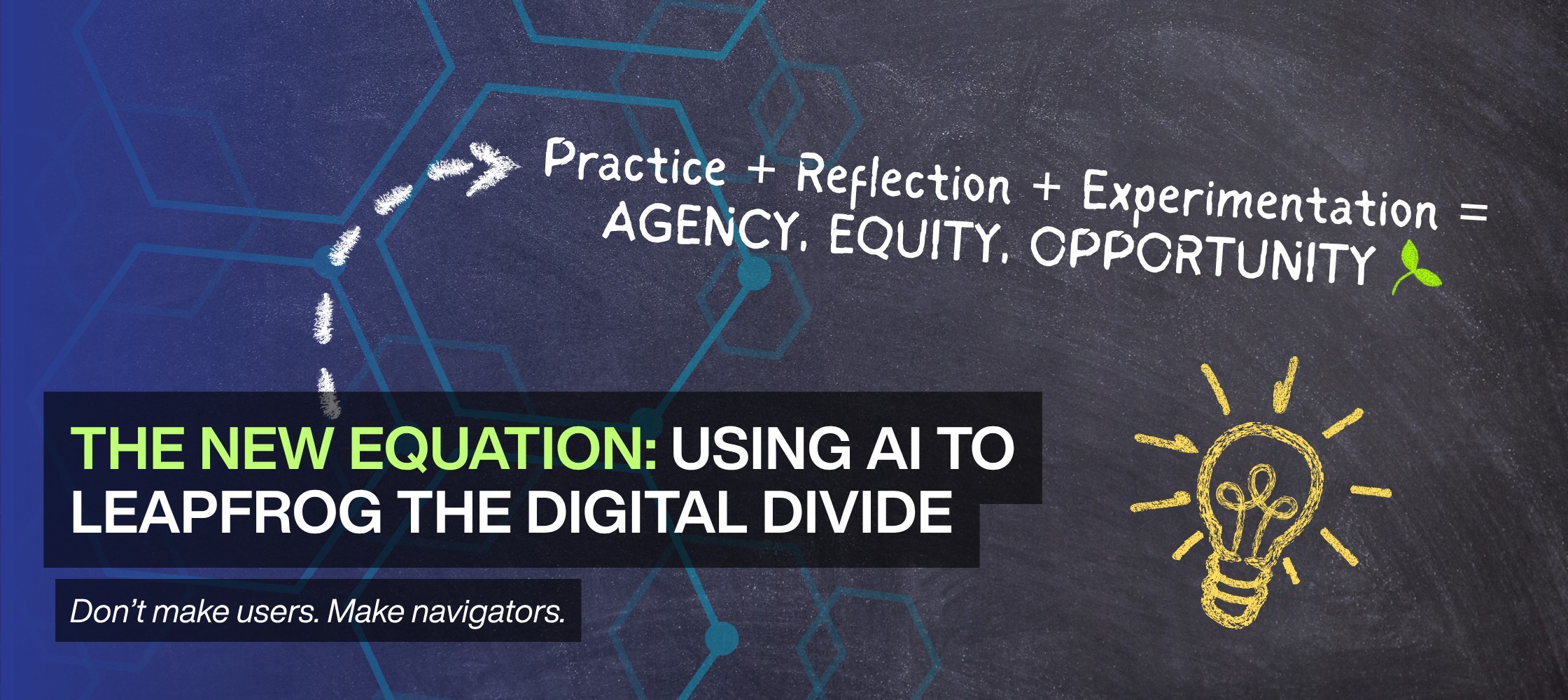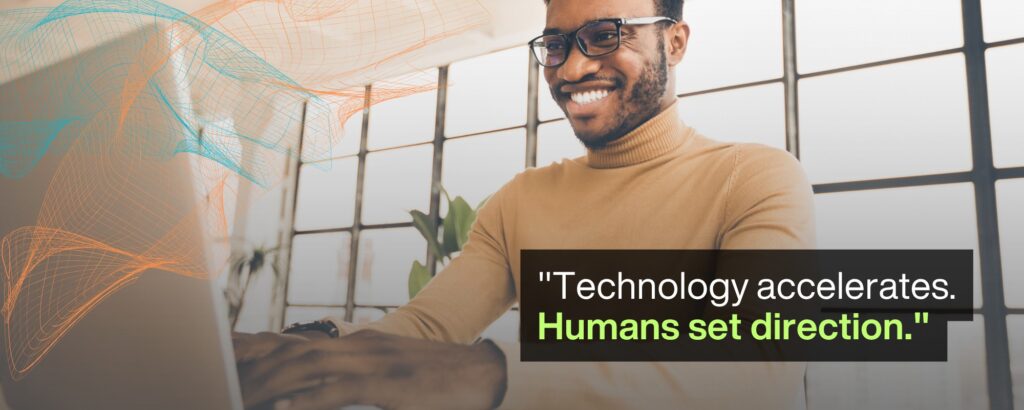
Artificial Intelligence is reshaping the world of work faster than any technology in modern history. But this moment isn’t just about new tools — it’s about a new kind of capacity in the future of work. For this generation, AI is our moonshot: not about going to space, but about unlocking our capacity through new ways of learning, earning, and creating opportunity.
The last digital revolution — the rise of the personal computer and the internet — showed us that the biggest divide wasn’t technological. It was human. The communities that were empowered by building this new capacity early became builders of the new economy. The communities that did not build that capacity were left out and became consumers of decisions made without them.
Today, we are standing at the same fork in the road.
And just like before, the gap isn’t about potential — it’s about participation capacity.
In the 1990s and early 2000s, access alone didn’t create equity. What made the difference was guidance, mentorship, and the confidence to use technology as a tool for self-direction.
The same pattern is emerging with AI:
1 in 5 workers already use AI — but adoption is lowest in the very communities that stand to benefit most.
If the first digital divide was defined by who had access, the next one will be defined by who feels confident enough to shape technology — not simply receive it.
“The biggest risk isn’t AI replacing people — it’s people never learning and leading it.” (Hopeworks AI Navigator Principle)
This is why Hopeworks focuses on AI differently.
The goal isn’t to make users of technology.
The goal is to make navigators — people who can direct it, question it, improve it, and apply it ethically.
To do this, we started a simple but powerful human-centered framework:
Practice builds fluency. Every time you use AI to draft, plan, test, or create, it reduces fear and grows capability. Practice doesn’t just sharpen technical application— it builds confidence.
Reflection turns activity into awareness. It helps you see why something worked, not just that it worked. Reflection is where human judgment lives — ethics, empathy, nuance, culture, and context.
Experimentation is how innovation actually happens. Don’t wait for a perfect plan — they try something small, test it, learn, and adjust. In a world changing this quickly, experimentation becomes a form of readiness.
When these three elements come together, they unlock something deeper:
Practice + Reflection + Experimentation = The NEW EQUATION
And the NEW EQUATION leads to Agency, Equity, and Opportunity.
Agency — We become shapers of technology, not spectators of it.
Equity — Access is paired with understanding, not left to chance.
Opportunity — Skill becomes mobility — new roles, new pathways, new confidence for a strong Future of Work mindset.
This is how Hopeworks ensures AI does not widen the divide — it closes it.

The future of work will not be built by experts alone — it will be built by people and communities that are ready to experiment, together. AI is not a destination; it is a capacity shift, and we must teach that capacity in a human-first way.
Technology may be accelerating — but humans still provide the direction.
The question now is not whether AI will shape the Future of Work.
The question is who will have the agency to shape it with intention.
Your role in this moment is not to wait, or to wonder, or to watch from the sidelines.
Your role is to learn. Learn in community, learn while alone, but learn, learn — to build understanding and fluency, to test ideas, and to grow your mindset towards AI.
Because if AI is our generation’s moonshot, then the mission isn’t the machine.
The mission is us — and what we choose to become with it.
Authored by Erich Smith, Director of Learning and Development, Hopeworks. Future of Work Advocate.
Linkedin: https://www.linkedin.com/in/erich-b-smith-onward888/